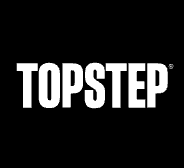Prop Trading vs Retail Trading
When I started trading, I did what most people do — opened a tiny brokerage account, loaded it with personal savings, and hoped I’d figure it out along the way.
What I didn’t know at the time? I was walking straight into the slowest, most emotionally exhausting path possible: retail trading. Eventually, I found prop trading — and that flipped everything. Same skills, completely different game.
This article isn’t about which one is “better” in theory. It’s about what I’ve experienced on both sides — retail and prop — and why one of them finally gave me the freedom, structure, and potential I was chasing all along.
⚡ Key Takeaways:
- Retail trading is flexible but painfully limited — your account size becomes your ceiling, and your emotions are always on the line.
- Prop trading offers scale, structure, and capital access — but you have to prove yourself and stay sharp under real pressure.
- The right path depends on your goal and mindset — if you want to grow fast and treat trading like a business, prop is probably it.
What Is Prop Trading?
Prop trading is what happens when someone else believes in your skills enough to hand you capital — and say, “Here, let’s see what you can do with it.”
Instead of risking your own money, you’re trading with firm capital. But there’s a trade-off: you have to prove you can handle it first. That usually means passing an evaluation or challenge, sticking to strict risk parameters, and showing consistency — not just one lucky week.
It’s structured. It’s performance-based. And honestly, that structure is what most traders desperately need — especially coming from the chaos of retail.
Your upside? Huge. You can go from trading a $500 personal account to managing $50K, $100K, even seven figures with the right firm. (I broke down the best prop firms for futures traders in 2025 if you’re heading that direction.)
There’s a catch, of course: you’ve got to stay sharp. Break a rule, you’re out. Trade emotionally? You’ll get exposed quickly. But for traders who are serious — and ready to treat this like a career, not a hobby — prop trading opens doors retail just never could.
How I Started as a Retail Trader
Like most people, I came into trading with way more ambition than preparation. I had a few thousand saved, thought I could flip it into something meaningful, and figured I’d “figure it out along the way.”
Spoiler: I didn’t.
I jumped between strategies, chased every candle that looked exciting, and traded without any real process. One day I’d feel invincible, the next I’d wipe out half my account on a revenge trade. It wasn’t trading — it was emotional chaos with charts.
What hit me hardest wasn’t even the losses — it was the sense of being stuck. I knew I could trade. But with a small account, every mistake hurt too much. And even when I had good runs, the upside just wasn’t big enough to justify the stress.
I didn’t want to spend the next five years slowly building a $1k account into $5k — especially when I saw other traders managing six-figure accounts through prop firms.
That was the turning point.
Making the Shift to Prop Trading
At first, I thought prop firms were just another shiny object — another “opportunity” being hyped by influencers who hadn’t really traded a day in their lives.
But after burning through enough personal capital and getting nowhere, I started paying attention. Real traders were getting funded. Real payouts were happening. And the idea of trading without risking my own money started to sound less like a gimmick… and more like freedom.
What really sold me wasn’t the capital. It was the structure. Evaluations gave me rules. Rules forced discipline. Discipline led to actual growth.
I failed my first few challenges — like most people do. But eventually, I passed. And when I got that first funded account, something clicked. I wasn’t chasing setups anymore. I wasn’t overtrading. I wasn’t panicking after a small loss. I was focused, measured, and for the first time — profitable on purpose.
If you want a step-by-step guide to get there without spinning in circles like I did, check out how to become a prop trader and get funded. It’s the roadmap I wish I had.
Key Differences That Actually Matter
People love to argue about retail vs prop like it’s some kind of trading religion. But most of that noise misses the point. Here’s what actually shifts when you go from retail to prop — and why it matters.
Capital:
In retail, your account is your ceiling. In prop, your skill is. That’s a massive mindset shift. You’re no longer limited by what’s in your bank — just by how well you can perform within rules.
Risk:
Retail risk hits different. When it’s your own money on the line, every loss feels personal. Prop trading doesn’t remove the emotional sting, but it lets you trade objectively. You’re managing someone else’s capital, so the decisions become more professional by default — or you don’t last.
Pressure:
Retail pressure is silent but brutal — slow death by 1% drawdowns. Prop trading adds pressure up front (rules, targets, time limits), but if you pass and settle in, it gets cleaner. You have space to execute, not just survive.
Growth:
With retail, growing your account is a grind. With prop, passing one challenge can 10x your capital overnight — if you can hold it. Add scaling plans to the mix, and suddenly you’re managing accounts you never thought possible.
I covered more of the psychological side in this article about why most traders fail at prop firms, but this is the structural stuff. And it’s what helped me break the plateau.
Why Retail Trading Still Teaches You Something
Look, I’ll never tell someone to skip retail trading altogether. Retail was my training ground. It’s where I learned most of my hardest lessons — with my own money on the line.
You learn pain tolerance fast when you blow your own cash. You also learn discipline (eventually), patience (sometimes), and just how badly things can go when you don’t have a plan. Retail hurts, but that’s what makes it valuable.
Retail also gives you total freedom — which is both a blessing and a curse. You can trade however and whenever you want. No risk managers. No rules. No structure. And that’s the trap most people fall into.
But if you survive it? You come out tougher. You come out clearer on what doesn’t work. And for me, that made all the difference when I finally stepped into prop.
So no, I don’t regret starting in retail. I just wish I didn’t stay there so long.
Which Is “Better”? It Depends On This…
So here’s the golden question: is prop trading better than retail trading?
Honestly? It depends.
If your goal is to scale fast, trade bigger without putting your own savings at risk, and eventually turn trading into a full-time thing — then yeah, prop trading is the clear winner. It’s structured, capital-backed, and performance-based. There’s accountability baked into the system, which most traders desperately need.
But if you’re just getting started, still figuring out your edge, and not quite ready to follow someone else’s rules? Retail might be the better training ground — as long as you treat it seriously and don’t fall into the “just wing it” trap.
What matters more than the model is your mindset.
Retail gives you freedom.
Prop gives you structure.
Neither guarantees success. Both will expose your weaknesses.
If you're not sure which path fits you best right now, reading this breakdown of what prop trading actually is might help you zoom out and see the big picture.
.webp)
.png)





.webp)


.jpeg)
.webp)

.webp)
.jpeg)
.png)
.png)
.jpeg)
.jpeg)


.png)

.png)






.png)
.png)
.jpeg)
.jpeg)

.jpeg)
.png)
.jpeg)





.jpeg)

